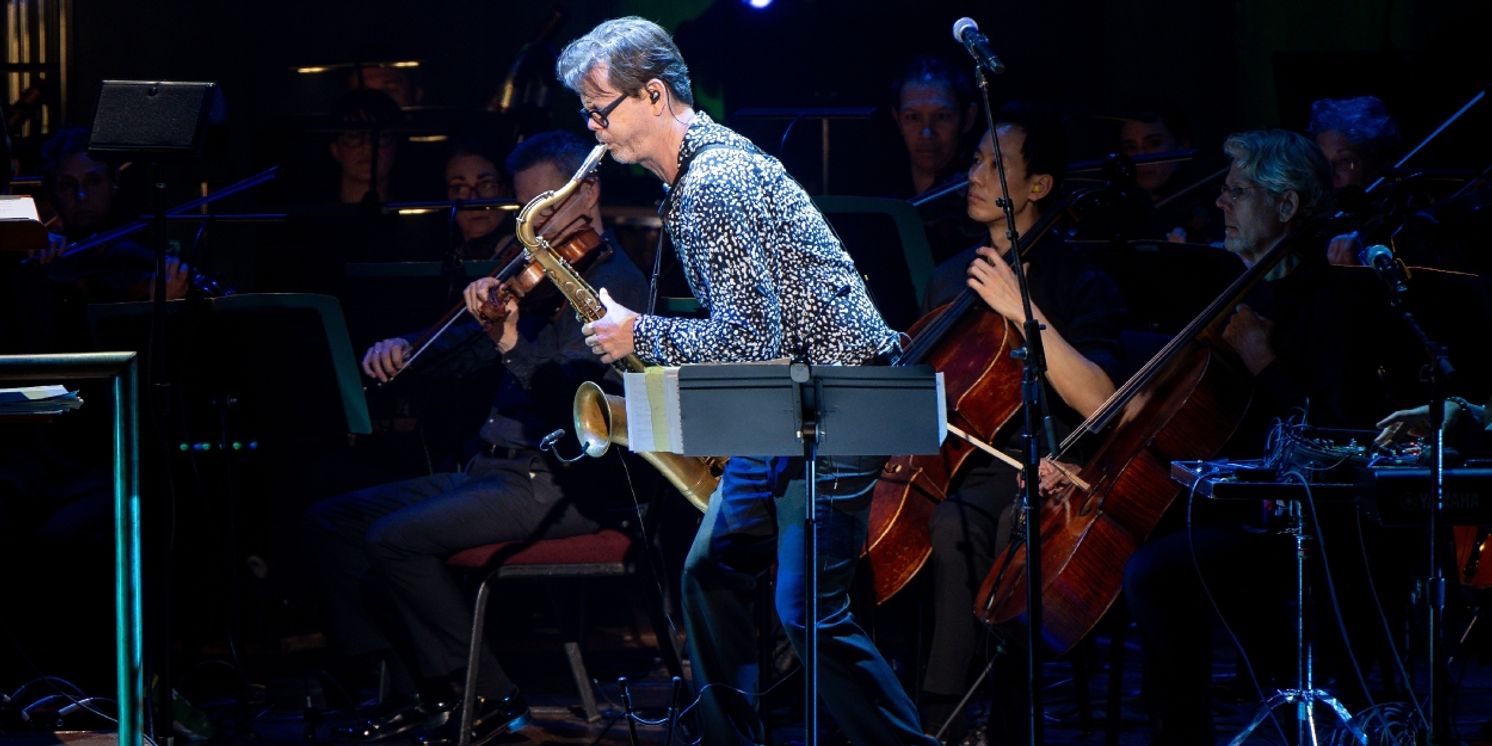Review: BLACKSTAR SYMPHONY: THE MUSIC OF DAVID BOWIE at Kennedy Center
Splendid orchestral adaptation of the rock star's final album

It was a one-two punch to fans of David Bowie in early 2016 when the rock star was suddenly pronounced dead and two days later, on what would have been his 69th birthday, released his final album, “Blackstar,” a preordained farewell addressing his demise.
Not only did anyone know he was recording a new album; nobody knew he’d been ill.
Bowie obviously never planned to tour with the album but the jazz group with which he recorded it finally devised a way it could do so. “Blackstar Symphony: The Music of David Bowie” had a splendid, stirring two-night run at the Kennedy Center over the weekend, replicating the singular album while adding a half dozen other favorites at the end.
It was due largely to the young saxophonist Donny McCaslin, who Bowie met while working with jazz composer Maria Schneider, who won a Grammy arranging Bowie's “Sue (Or in a Season of Crime” in 2014.
McCaslin’s inventive tone melded with Bowie’s intent and so did his combo — both on the subsequent Grammy-winning album and in the concert, despite being vastly outnumbered by the National Symphony Orchestra under the direction of guest conductor Jules Buckley, who has had experience orchestrating avant garde jazz, having worked with outfits from Snarky Puppy to Massive Attack.
Together the young men shepherded this artistic farewell from a major musical force to its remarkable stage presentation.
There is a wistfulness to the tracks, guided by McCaslin’s sax, that lulls one in until hearing the startlingly direct lyrics such as “something happened on the day he died” in the opening title track. The first of the night’s three singers, David Poe, handled its vocals, looking ever the part of a lanky rock star in skinny tie and bearing much of the vocal panache.
For the even more direct song “Lazarus,” Gail Ann Dorsey, who for years played bass for Bowie and filled in the Freddie Mercury vocal parts for “Under Pressure” in concert when needed, took the spotlight, minus her bass but showing a remarkable vocal power on a song that begins, startlingly, “Look up here, I’m in heaven.”
The marquee name among the singers was guest artist John Cameron Mitchell, who earned fame by co-creating and starring “Hedwig and the Angry Inch” which was basically his take on Bowie’s Ziggy Stardust. He had a tie and coat on as well, but also impishly a long dress as he sang “Girl Loves Me” in almost a German accent, fitting its vaguely Weimar-era sound.
As close as the music sounded to the original recording, some were slightly stretched for an extra saxophone solos or to provide an orchestral swell. A variety of orchestrators were used for the concert, from the much-lauded Vince Mendoza, to Schneider, to Tony Visconti, the longtime Bowie producer who handled the arrangement for “Dollar Days.”
Visconti wasn’t on stage, where he might have helped out, adding electric guitar here or there. It was striking to hear a concert of Bowie music where that instrument was so surprisingly absent.
It made the work of the solid quartet, that included Jason Lindner on keyboard, Tim Lefebvre on bass on Nate Wood on drums, stand out even more. Of note was the sound engineering of Troy Choi - rarely has a jazz and orchestra blended so well sonically; lighting designer Ryan O’Gara helped effectively set the tone with gauzy palette.
At the heady conclusion of “Blackstar,” with “I Can’t Give Everything Away,” the evening shifted to songs that, other than the melodic 2013 “Where Are We Now?” were certainly more familiar to the audience, from the 52-year-old “Life on Mars?,” gloriously sung by Dorsey to the even older “Space Oddity,” for which she picked up the first guitar of the night, albeit an acoustic, to tell the oft-told tale of Major Tom, adrift in heaven now, like its author. The audience became a part of it by adding the song’s occasional double-claps unbidden.
“Heroes” was a natural end, with all three singers pitching in for its optimistic heights. And after the ovation, and the exit of the NSO, McCaslin, who said more than once how honored he was to present this music, asked the crowd if they wanted some more, minus the orchestra (Naturally they did).
The stripped down unit obliged with a celebratory “Let’s Dance” that gave bassist Lefebvre a Chic workout and saw drummer Nate Wood also balancing a guitar on his knee.
And at last, Dorsey picked up the electric guitar for the first time of the night to kick off “Rebel, Rebel” that Mitchell spanned the stage to sing (ending up in the audience at one point) exuberantly telling of that mother in a whirl, “not sure if you’re a boy or a girl.”
Running time: About 90 minutes, no intermission.
Photo credit: Donny McCaslin and the National Symphony Orchestra. Photo by Mauricio Castro.
“Blackstar Symphony: The Music of David Bowie” played June 28 and 29 at the Kennedy Center for Performing Arts. Information online.
Reader Reviews
Videos

